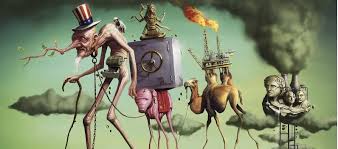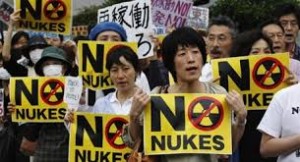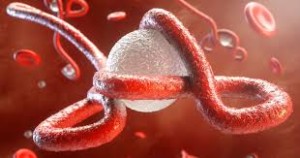When discussing the nature of good and bad, we are on tricky ground indeed, for many — or most — of man’s and woman’s atrocities to man and woman have been committed in misguided pursuit of “the good.”
Whose good? In our arena of events, obviously, one man’s and woman’s good can be another’s disaster. Adolf Hitler pursued his version of “the good” with undeviating fanatical intent. He believed in the superiority and moral rectitude of the Aryan race. In his grandiose, idealized versions of reality, he saw that race “set in its proper place,” as natural master of humankind.
He believed in heroic characteristics, and became blinded by an idealized superman version of an Aryan strong in mind and body. To attain that end, Hitler was quite willing to sacrifice the rest of humanity. “The evil must be plucked out.” That unfortunate chant is behind the beliefs of many cults — scientific and religious — and Hitler’s Aryan kingdom was a curious interlocking of the worst aspect of religion and science alike, in which their cultish tendencies were encouraged and abetted.
The political arena was the practical working realm in which those ideals were to find fruition. Hitler’s idea of good was hardly inclusive, therefore, and any actions, however atrocious, were justified.
How did Hitler’s initially wishy-washy undefined ideals of nationalistic goodness turn into such a world catastrophe? Hitler’s daydreams became more and more grandiose, and in their light, the plight of his country seemed worsened with each day’s events. He counter its humiliations over and over in his mind, until his mind became an almost completely closed environment, in which only certain ideas were allowed entry.
All that was not Aryan, really , became the enemy. The Jews took the brunt ,largely because of their financial successes and their cohesiveness, their devotion to a culture that was not basically Aryan. They would become the victims of Hitler’s fanatical ideal of Germany’s good.
Hitler preached on the great value of social action as opposed to individual action. He turned children into informers against their own parents. He behaved nationalistically, as any minor cult leader does in a smaller context. The Jews believed in martyrdom. Germany became the new Egypt, in which their people were set upon. I do not want to simplify here, and certainly I am nowhere justifying the cruelties the Jews encountered in Germany. We do each create our own reality, however, and en masse we create the realities of our nationalities and our countries — so at that time the Germans saw themselves as victors, and the Jews saw themselves as victims.
Both reacted as groups, rather than as individuals, generally speaking now. For all of their idealism, both basically believed in a pessimistic view of the self. It was because Hitler was so convinced of the existence of evil in the individual psyche, that he set up all of his existence of evil in the in the individual psyche, that set up all of his rules and regulations to build up and preserve “Aryan purity.” The Jews’ idea was also a dark one, in which their own rules and regulations were set to preserve the soul’s purity against the forces of evil. And while in the Jewish books [of The Old Testament} Jehovah now and then came through with great majesty to save his chosen people, he also allowed them to suffer great indignities over long periods of time, seeming to save them only at the last moment — and this time, seemed, he did not sane them at all. What happened?
Despite himself, and despite his followers, Hitler brought to flower a very important idea, and one that changed our history. All of the most morbid of nationalistic fantasies that had been growing for centuries, all of the most grandiose celebrations of war as a nation’s inalienable right to seek domination, focused finally in Hitler’s Germany.
The nation served as an example of what could happen in any country if the most fanatical nationalism was allowed to go unchecked, if the ideas of right were aligned with might, if any nation was justified in contemplating the destruction of others.
We must realize that Hitler believed that any atrocity was justified in the light of what he thought of as the greater good. To some extent or another, many of the ideals he held and advocated had long been accepted in world communities, though they had not been acted upon with such dispatch. The nations of the world saw their own worst tendencies personified in Hitler’s Germany, ready to attack them. The Jews, for various reasons — and again, this is not the full story — the Jews acted as all of the victims of the world, both the Germans and the Jews basically agreeing upon “man’s nefarious nature.” For the first time the modern world realized its vulnerability to political events, and technology and communication accelerated all of war’s dangers. Hitler brought many of man’s and woman’s most infamous tendencies to the surface. For the first time species the species understood that might alone did not mean right, and that in larger terms a world war could have no real victors. Hitler might well have exploded the world’s first atomic bomb.
In a strange fashion, however, Hitler knew that he was doomed from the very beginning, and so did Germany as far as Hitler’s hopes for it were concerned. He yearned for destructions of his earlier ideals. This meant that he often sabotaged his own efforts, and several important Allied victories were the result of such sabotaging. In the same way, Germany did not have the [atomic] bomb for the same reasons.
Now, however, we come to Hiroshima, where this highly destructive bomb was exploded (on August 6, 1945) — and for what reason? To save life, to save American lives. The intent to save American lives was certainly “good” — at the expense of the Japanese this time. In that regard, America’s good was not Japan’s, and an act taken to “save life” was also designed to take individual lives.
At what expense is “the good” to be achieved — and whose idea of the good is to be the criterion? Man’s and woman’s pursuit of the good, to some extent now, fathered the Inquisition and the Salem witch hunts. Politically, many today believe that Russia/Iran is “the enemy,” and that therefore any means may be taken to destroy that country. Some people within the United States believe fervently that “the establishment” is rotten to the core, and that any means is justified to destroy it. Some people believe that homosexuals and lesbians are “evil,” that somehow they lack the true qualities of humanness [and therefore need not be treated with normal respect]. These are all value judgements involving our ideas of the good.
Very few people start out trying to be as bad as possible. Al least some criminals feel that in stealing they are simply righting society’s wrongs. I am not saying that is their only motive, but in one way or another they manage to justify their activities by seeing them in their own version of the good and the right.
We must realize that fanatics always deal with grandiose ideals, while at the same time they believe in man’s and woman’s sinful nature, and the individual’s lack of power. They cannot trust the expression of the self, for they are convinced of its duplicity. Their ideals then seem even more remote. Fanatics call others to social action. Since they do not believe that the individual is ever effective, their groups are not assemblies of private individuals come reasonably together, pooling individual resources. They are instead congregations of people who are afraid to assert their individuality, who hope to find it in the group, or hope to establish a joint individuality — and that is an impossibility.
True individuals can do much through social action, and the species is a social one, but people who are afraid of their individuality will never find it in a group, but only a caricature of their own powerlessness.
Hitler’s espousal of a German-Aryan super-race is an excellent example of how a leader can subvert history to his own ends. Anthropologists do not assign any validity to “Aryan” as a racial term. In Nazi eyes, Aryans were the non-Jewish, Caucasian, “Nordic” descendants of the prehistoric peoples who originally spoke the hypothetical parent language of the Indo-European language family. The Aryans flooded into India, the Middle East, and Europe from southern Russia.






























































